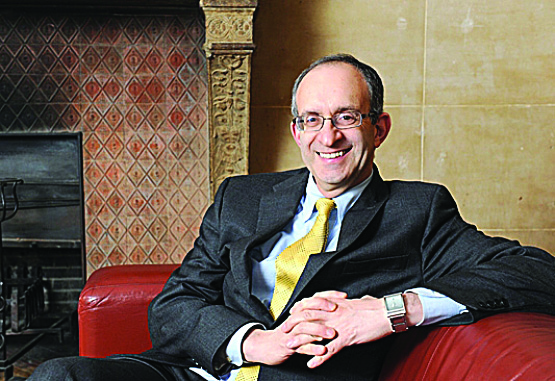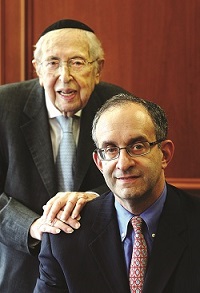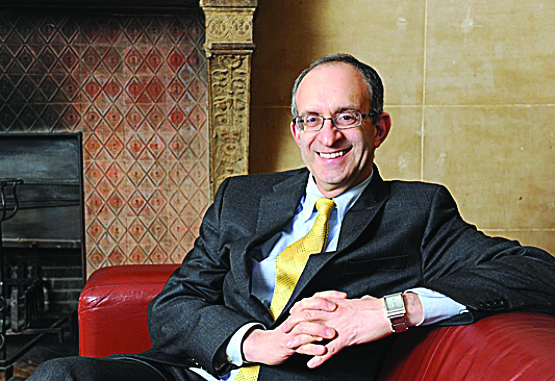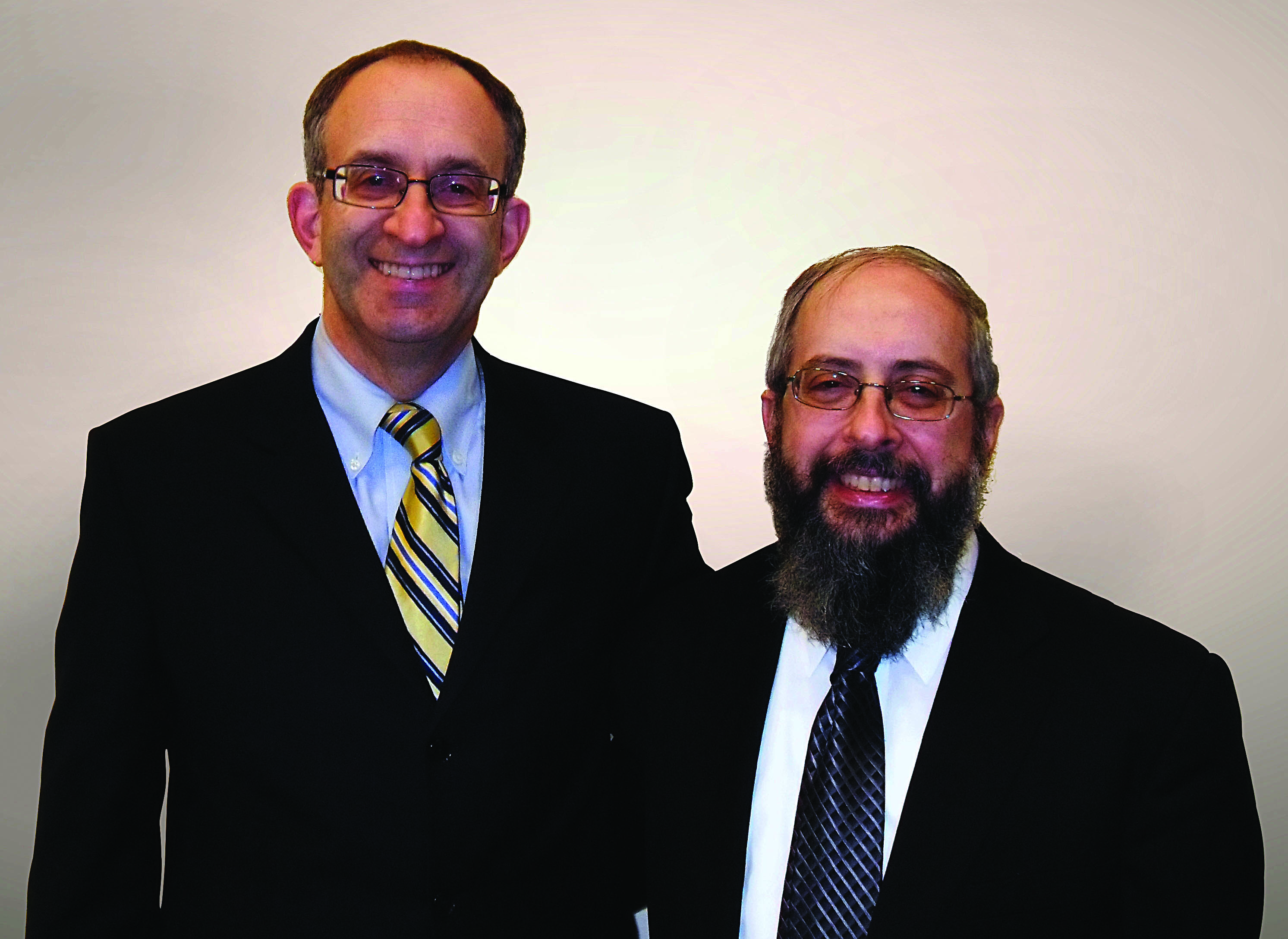
Dr. Alan Kadish, a Teaneck resident, joined Touro College in 2009 shortly before the passing of Dr. Bernard Lander, the university’s founder and president since 1970. Dr. Kadish spoke to The Jewish Link about his work over the past seven years, his thoughts on becoming Touro’s second-ever president, and Touro’s impact on the local Jewish community in the region.

A prominent cardiologist with a national reputation, Dr. Kadish came to Touro from Northwestern University where he served on the faculty and as an administrator for 19 years. Though hired at Touro initially to be senior provost with the understanding that he would succeed Dr. Lander as president, Dr. Kadish had only been at Touro for a few months when Dr. Lander passed away, catapulting Dr. Kadish into the role in 2010, in much shorter order than originally envisioned. Dr. Kadish, however, rose to the challenge; after all, he has worked throughout his career in many complicated roles: as a teacher, research scholar, scientist, clinician and senior administrator.
The Lander family and Touro’s board had significant faith in Dr. Kadish’s ability to lead; Touro’s chancellor, Rabbi Doniel Lander (Dr. Bernard Lander’s son), and Kadish were childhood friends who grew up together in Queens.
“Dr. Kadish is a brilliant doctor who has impressed everybody at Touro with his ability not only as an academic but also as a CEO who is able to navigate Touro through the difficult economic climate, and is extremely devoted to moving Touro forward and reaching excellence in all of our academic units,” said Rabbi Lander.
A prolific researcher and writer, Kadish has written extensively in his field of cardiology, authoring over 300 peer-reviewed papers and contributing to several textbooks. He is board-certified in cardiovascular disease, clinical cardiac electrophysiology and internal medicine. Based on that experience, Dr. Kadish has said Touro has become “an important school for the study of health sciences” and that he hopes to use his experience in medicine to propel Touro’s geographically distinct medical programs to leadership roles in American medicine. Touro operates two colleges of pharmacy, three colleges of osteopathic medicine, and several graduate schools and colleges in health sciences in several states including California, Nevada and New York. Dr. Kadish noted that Touro’s Jacob D. Fuchsberg Law Center and Graduate School of Education are first-class institutions that he hopes to develop further and involve in interdisciplinary research throughout Touro.
But with such a wide variety of responsibilities as a college president, does he miss practicing medicine? “I’m too busy to miss it,” Kadish told The Jewish Link.
Dr. Kadish shared that one of Dr. Lander’s most enduring legacies, however, may be the undergraduate, yeshiva-style, dual curriculum program he opened 12 years ago, which draws from all sectors of the yeshiva day school graduate population, including many Teaneck residents. Lander College for Men (LCM), based in Queens, and Lander College for Women (LCW), based in Manhattan, are both undergraduate, limudei kodesh and secular degree-granting arms of Touro College. Touro’s undergraduate College of Arts and Sciences also offers a secular liberal arts degree with significant high-level opportunities for Torah learning, as opposed to requirements. This program has 3,500 students in campuses throughout New York City, and welcomes about 100 yeshiva day school grads annually.
For much of the last two decades, there have been a finite number of universities to which typical tri-state-area yeshiva day school grads would consider attending. If they are ready to make a commitment to continue learning limudei kodesh alongside secular topics, they would most likely consider attending Yeshiva College or Stern College for Women. Others with more secular academic aspirations might opt for an Ivy League undergraduate experience, or another well-known nationally ranked university with a large Jewish population, such as Rutgers, Boston University or the University of Maryland. Others seeking a more typical college experience might try a college in the SUNY system or another state university on the Eastern seaboard.
In stark contrast to secular universities, the entire Touro College system is a shomer Shabbat, shomer kashrut family of undergraduate and graduates programs. It serves 18,000 students from all religions and walks of life. Dr. Lander, a former dean of the Bernard Revel Graduate School at Yeshiva University, found in Touro his mission to support and extend Jewish heritage by offering excellent, low-cost education to the general population.
Lander College for Men launched in the fall of 1999. While initially the two Lander Colleges were envisioned as small undergraduate programs, LCM and LCW have begun to draw more significant numbers of students, potentially from other programs in the region, due to their low cost, easy proximity, rigorous approach to both religious and secular coursework and varied courses of study.
Kadish explained why he thinks the Lander model is appealing to so many students.
“I do believe that a real undergraduate education, as opposed to getting a piece of paper, prepares you for the future,” he said. “Sometimes it’s not for the first job, sometimes it’s for the second. Maybe the skills required for the first job are the skills that many people have, but as you move up, you need those critical thinking skills, you need broader understanding.”
What are some of the skills required?
“Writing has become more important,” Kadish said. “Being able to write in the information age is still extraordinarily important. That’s something that high school grads, not just yeshiva high school grads, don’t do well. And I think if you’re going to succeed in the outside world there is a general cultural competence you need that an undergraduate, liberal arts core helps you with.”
Focusing on developing both critical thinking and writing skills in the secular environment, alongside the natural development that comes with a top-notch limudei kodesh experience is Lander’s key. “I believe we provide the better future for people. Obviously, not everyone agrees, but our job at Touro is to make people aware that you will be more successful in the long term if you actually learn a series of skills as an undergraduate, rather than just getting a piece of paper,” he explained.
Kadish also shared how important he feels an undergraduate education is (in addition to limudei kodesh learning, if that makes sense for the student), for high school graduates.
“There are rare people, like Bill Gates and like some of our board members, who can succeed without having had a college education,” he said. “But I think for the average student, it’s not just about getting the degree, it’s also about learning a series of skills. Critical thinking: you learning critical thinking learning Gemara, but there is a difference in applying those critical thinking skills to other areas.”
The undergraduate schools, like many Touro programs, are in a period of growth. “These schools have continued to grow over the past five years,” Kadish said. “Our goal is simply to provide a high-quality education at a low cost.”
LCM, which has about 400 students enrolled, attracts young men interested in a profound commitment to limudei kodesh who also seek to pursue a professional career concurrently. The time committed to limudei kodesh is some indication of the level of dedication. The morning seder lasts until 3 p.m., and students study secular topics after that. Academic secular majors include the common majors in business, the natural sciences, as well as profession-oriented majors in pre-health and pre-engineering.
“Lander College for Men requires a serious commitment to learning, which many students from Teaneck have,” said Kadish. “The majority of students at Lander College for Men come from Modern Orthodox backgrounds and have developed a love for learning while in yeshiva in Israel or while in high school. We have some very successful graduates from Teaneck.”
At LCW, the commitment to limudei kodesh learning is less intense than at LCM, but opportunities abound at multiple levels for women who are yeshiva day school grads or NCSY grads who might have attended public high school but seek access to mechina-style learning. The program seeks to offer affordable academic excellence imbued with Torah values.
“At Lander College for Women we have a little bit more of a diverse student body,” Kadish said. “We have about 25 students a year from NCSY. In addition, the opportunities for engaging in Torah studies are immense, but the requirements aren’t extensive in terms of the number of hours. So it can potentially appeal to a broader group of students.” By contrast, the LCM program is more homogeneous, he said.
Kadish added that LCM has recently welcomed several new rabbanim—Rabbi Shmuel Marcus and Rabbi Aryeh Lebowitz—who are extremely popular. “They are younger and have different styles. A lot of the college experience, if you’re in a serious learning program, depends on who your rosh yeshiva is. This has expanded the diversity of the offerings,” Kadish said.
Kadish explained that a great deal of how students are influenced to choose Lander happens during their year in Israel. “A lot of it is about who the roshei yeshiva in Israel think would create good counseling and academic continuity in learning,” he said.
To that end, Kadish added that he goes on a recruiting trip to Israel every year. “I visit seminaries and yeshivot and spend some time with seminary heads and try to get their impression of what young women want and what they need and try to see if we can provide it,” he said.
Kadish explained that the LCM and LCW experience is not for every yeshiva day school graduate, but as Lander has developed and made a name for itself within Touro, more have become aware of Touro’s vast family of undergraduate and graduate programs, so more and more of them are turning toward Touro College to check out its offerings. (In addition to a full undergraduate liberal arts program, Touro offers top-notch medical degrees through New York Medical College, in addition to hosting accredited, highly ranked graduate programs in dental, law, social work, health sciences, business, technology, Jewish students and osteopathic medicine.)
That day school graduate who might not be ready to commit to learning, who might have heard of Touro, now has another choice within the institution. “What we don’t have in LCW and LCM is a program for students who, for whatever reason, want to learn a little bit but don’t want to make a huge commitment to learning. So we are talking, in one of our other undergraduate schools, about ways to accommodate those students,” he said.
“All our schools are shomer kashrut, all are shomer Shabbat, and they have a rav assigned to that school, so it’s a little bit of a different environment than going someplace else, let’s say. Obviously, we want our Jewish students to go to Lander, but now we are supporting those kids for whom that [Touro undergrad] is a reasonable choice,” he said.
“The environment of the college campus has become tough in some places,” Kadish added. “And so, if we can provide a program that reaches a wide swath of the Jewish community we will do it. We would still rather the student learn in Lander if they are committed to learning, however.”
Learn more about Touro College at http://www.touro.edu.
By Elizabeth Kratz











